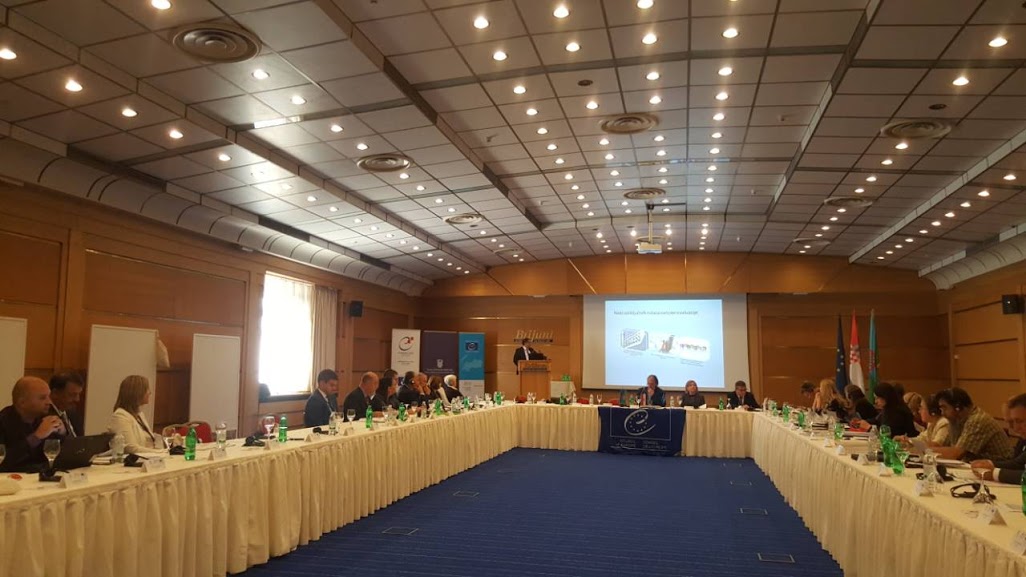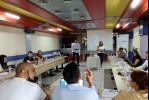Usein: Cycle of poverty of Roma remains uninterrupted
- 26 Sep 2018
- News

International expert seminar “Transition from Education to Employment for Roma Youth – a Key step in Roma Inclusion” in Brijuni Island, on 25 and 26 September 2018 (Photo: RCC/Orhan Usein)
Brijuni Island - Regional Cooperation Council’s (RCC) Roma Integration 2020 Action Team Leader Orhan Usein participated as a panelist at the international expert seminar “Transition from Education to Employment for Roma Youth – a Key step in Roma Inclusion”, taking place on 25 and 26 September in Croatia.
The seminar was organized by the
Government of the Republic of Croatia and the Council of Europe, with the aim
of promoting and protecting the rights of Roma in Europe. It gathered relevant
government representatives, international organisations and key Roma and
non-Roma experts in the area of youth, employment and vocational education and
training (VET), to improve
their knowledge, exchange experiences and share best practices, plan future
cooperation activities and identify possibilities for promoting VET and youth
employment.
On this occasion, Usein presented the
latest data and insights gained within the Roma Integration 2020 project. “The preliminary
results of the 2017 Regional Roma Survey showed that the ratio of the
population aged 18 to 24 not in employment, education or training (NEET) varies
from 73% to 86% across the enlargement region. The situation of young women is
worse off as 81% to 93% of them are NEET. Compared to 2011, the NEET rates have
increased in some of the enlargement region economies”, said Usein.
“The combination of these factors and the poor
housing conditions observed across the region indicate that the cycle of
poverty of Roma remains uninterrupted”, underlined Usein, affirming that information
available from the progress reports received by the RI2020 show that numbers of
Roma benefiting from education and employment programmes remain insufficient to
reverse the current trend and break the cycle of poverty.
Usein also stressed the need to
address discrimination in the employment sector more systematically. “Almost 55% of the employers think that employing Roma would have negative
influence on selling goods and services and on the working atmosphere in the
company”, reminded Usein on results of RCC’s Balkan Barometer. To tackle this
issue, the RI2020 plans to organize a regional conference on economic
(in)dependence of Roma women in October this year as well as a conference on
Roma employment in December.






